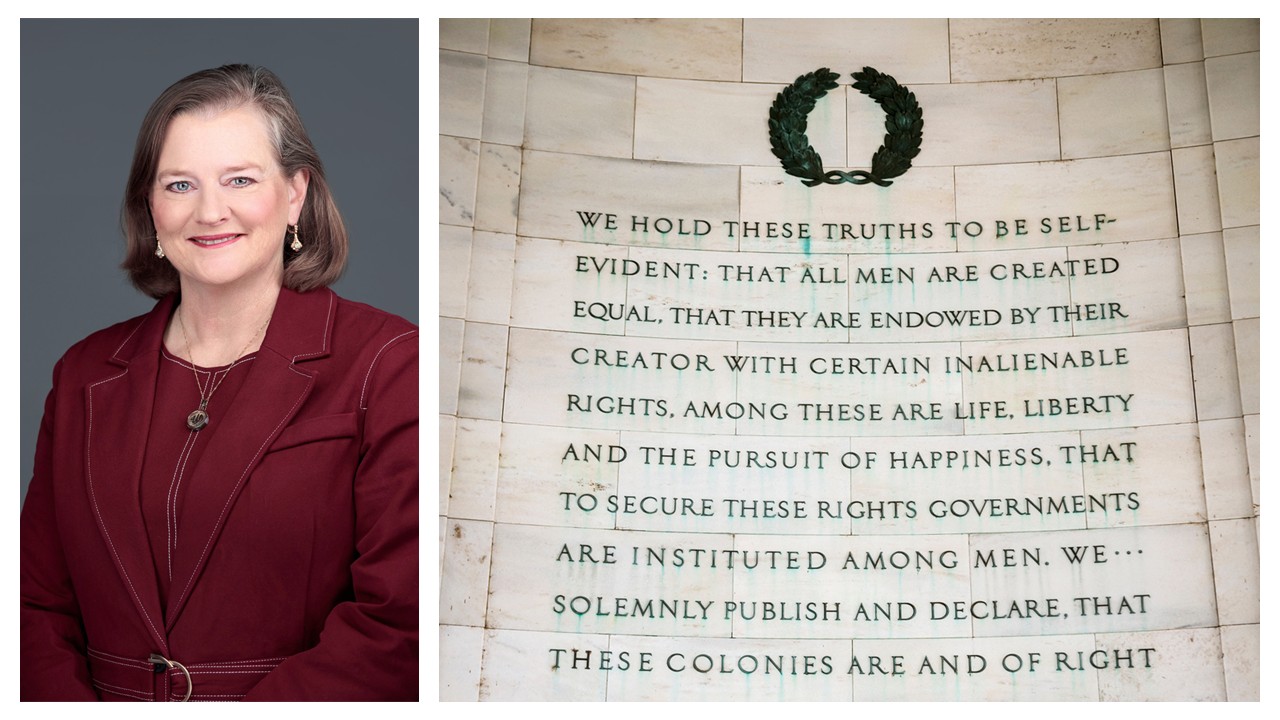
I appreciate the message Dave Tebo shares this month in his article in the July Issue, “A Declaration of Possibility.” When something is called a declaration, it clearly signals importance. As we approach America’s 250th anniversary, we need the mindset that Tebo advocates for.
One of the most impactful books I’ve read in the last few years was Love Your Neighbor: How Decent People Can Save America from the Culture of Contempt, by Arthur Brooks. Civil politics—characterized by the Thomas Jefferson quote that “a difference in politics should never be permitted to enter into social intercourse, or to disturb its friendships, its charities, or justice”—requires that we approach one another with respect. As our neighbors fall victim to name calling, mean memes, and “othering” that is commonplace in social media, our job gets even more challenging. The political neutrality that we rely upon to do our job—that we are relied upon to maintain while doing our job—gets harder.
I have had a couple of opportunities to speak at state association conferences this year and the message I am sharing is “values, pillars, and polarities.” The values are the four values that underpin democracy. (If you haven’t ever heard Dr. John Nalbandian speak about these values, I encourage you to watch his video on values.) The four pillars of public administration, adopted by the National Academy of Public Administration, are economy, efficiency, effectiveness, and equity. Executing our work in a way that aligns with the four pillars is our professional obligation. The concept of polarities brings to life the fact that decisions based on values and execution aligned with the four pillars means there will be trade-offs; one value will be emphasized, one pillar more critical to execution. Abiding by our commitment to remain apolitical creates an opportunity for our work to be seen as the embodiment of professionalism.
As we work to support our members, we are seeing the lens of what people perceive as “political” get broader and broader. People want to sort folks into this camp or that, and your job is to hold all of this and ensure the work of the majority is accomplished. Where is the line between policy and administration?
Values, pillars, polarities, and contempt create an environment where declarations are important. The ICMA Executive Board has been leaning on our foundational documents to ensure that we remain true to who we are. The ICMA Constitution, the ICMA Code of Ethics, and our own Declaration of Ideals allow us to remain true to our origin as a profession born from reform.
Brooks reminds us of Plato’s admonition in the Republic: “Can there be any greater evil than discord and distraction and plurality where unity ought to reign? Or any greater good than the bond of unity? There cannot.” Truly there cannot. We must accept the possibility that we can be what society needs as it falls deeper into this chasm of contempt.
To build on Tebo’s declaration, I will add Brooks’s challenge: “Your opportunity, when treated with contempt, is to change at least one heart—yours. You may not be able to control the actions of others, but you can absolutely control your reaction. You can break the cycle of contempt.”
I believe our members excel at this. Remember that when you are doing this challenging job, you are breaking the cycle of contempt. My hope is that we can all be what our society needs us to be: stewards of democracy, models of professionalism, and glimmers of hope.

JULIA D. NOVAK, ICMA-CM, is CEO/executive director of ICMA.
New, Reduced Membership Dues
A new, reduced dues rate is available for CAOs/ACAOs, along with additional discounts for those in smaller communities, has been implemented. Learn more and be sure to join or renew today!
